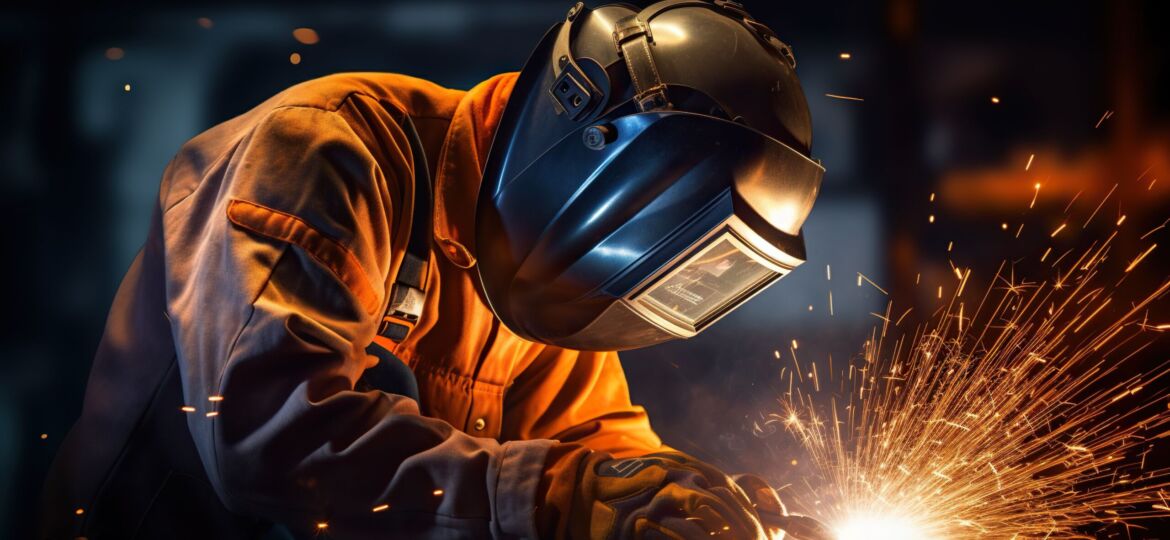
Exploring the Career of an Aircraft Welder
The aviation industry is an incredible field to work in, and many specialized careers help keep planes in the air. One of those crucial roles is an Aircraft Welder. These highly skilled professionals are responsible for ensuring that aircraft components are safely and accurately repaired, making them essential to maintaining air travel safety. Curious about this career? Let’s break it down step-by-step—what Aircraft Welders do, how to become one, the demand for this role across Canada, and why it’s a rewarding career choice.
FIND THE JOB YOU WANT! Finding your next job doesn’t have to be a solo act. Apply to a job on the Job Skills job board and one of our employment team members will help you through the process. https://www.jobskills.org/job-board/
What Does an Aircraft Welder Do?
Aircraft Welders are welding experts who focus on repairing and fabricating airplane components. Whether working on fuselages, engines, or other structural parts, these professionals have one of the most important jobs in aviation. Here’s a look at what they do day-to-day:
- Precision Welding: Aircraft Welding often involves working with lightweight metals like aluminum and titanium. With tools like TIG (Tungsten Inert Gas) welders, these experts ensure each weld meets stringent safety standards.
- Repairs and Maintenance: Aircraft components are subject to wear and tear. Welders help restore damaged parts, ensuring they’re as strong as new.
- Blueprint Interpretation: Understanding technical diagrams and blueprints is a regular part of the job. Aircraft Welders use these documents to ensure all repairs match engineering specifications.
- Safety Compliance: Every weld must adhere to strict safety regulations, which means Aircraft Welders must carefully inspect and test their work.
To be successful in this career, skills like attention to detail, problem-solving, and a deep understanding of metals and welding techniques are a must.
Pathway to Becoming an Aircraft Welder in Ontario, Canada
Empowering Your Job Search with Tools and Solutions for Success: Job Skills’ customized employment solutions are available to every job seeker, including youth, newcomers, persons with disabilities, women, and anybody else who may be searching for a job. https://www.jobskills.org/job-seekers/
If you’re a hands-on person who loves precision work, becoming an Aircraft Welder could be the perfect fit. Here’s the path to get there:
-
Education
Start with a high school diploma, focusing on math, science, and technical courses. Next, enroll in a welding program at a college or trade school. Look for training that emphasizes skills needed for aviation welding, like working with lightweight materials. -
Apprenticeship
Hands-on experience is key. Many aspiring Aircraft Welders begin their careers with a welding apprenticeship. This lets you gain practical skills while working under experienced welders. -
Certifications
Certification is essential in this field. Start with your Canadian Welding Bureau (CWB) certification, and then pursue additional aerospace-specific credentials. Certifications from organizations like Transport Canada or AS9100 are often required when working with aircraft materials. -
Specialized Skills
Developing expertise in TIG welding is highly recommended since it’s commonly used in the aviation industry. Building your knowledge of advanced metals used in aircraft, like titanium, will also make you a strong candidate.
Occupational Demand for Aircraft Welders in Canada
Interested in job stability and growth? Aircraft Welding could be your answer.
The demand for skilled Aircraft Welders is growing, thanks to Canada’s flourishing aerospace industry. Cities like Toronto, Montreal, and Vancouver house major manufacturing and repair hubs where opportunities are plentiful. Factors like increasing air travel, aircraft maintenance needs, and innovation in aerospace materials are all driving demand for skilled workers.
However, there is a catch—the talent pool for Aircraft Welders is quite small due to the specialized training and certifications required. This means if you have the right skills, you’ll likely find yourself in high demand with less competition. Industries like commercial airlines, defense contractors, and independent maintenance firms are always looking for certified Aircraft Welders.
Pros of Becoming an Aircraft Welder
Now that you know what the job involves and how to get there, let’s talk about why people love this career.
1. Rewarding Work
There’s something satisfying about knowing your work directly contributes to the safety of air travel. Aircraft Welders work in a specialized, respected career where their skills truly matter.
2. Competitive Salary
Aircraft Welders earn good money, with the potential to secure overtime pay. The combination of skills, certifications, and the labor demand keeps wages competitive.
3. Career Stability and Growth
Aircraft maintenance isn’t optional—it’s mandatory. That means steady work and opportunities to advance in your career. Over time, you can move into supervisory roles, quality assurance, or even training positions.
4. Cutting-Edge Technology
This career puts you at the forefront of aerospace innovation. You’ll work with advanced materials and equipment, constantly learning and advancing your skills.
5. Hands-On, Challenging Work
If you enjoy problem-solving and working with your hands, this job is perfect for you. Each day brings unique challenges, keeping the work interesting and engaging.
Is Aircraft Welding the Career for You?
Becoming an Aircraft Welder is a rewarding career choice for anyone who enjoys precision work and wants to be part of the aviation world. It’s challenging, specialized, and comes with excellent career perks, from competitive pay to job stability. With the right education and certifications, you could play a critical role in keeping planes—and people—safe.
If you’re interested in welding and want to explore opportunities in the aviation industry, now is a great time to start your career path. Who knows? One day, your work could help power planes to destinations around the world!

